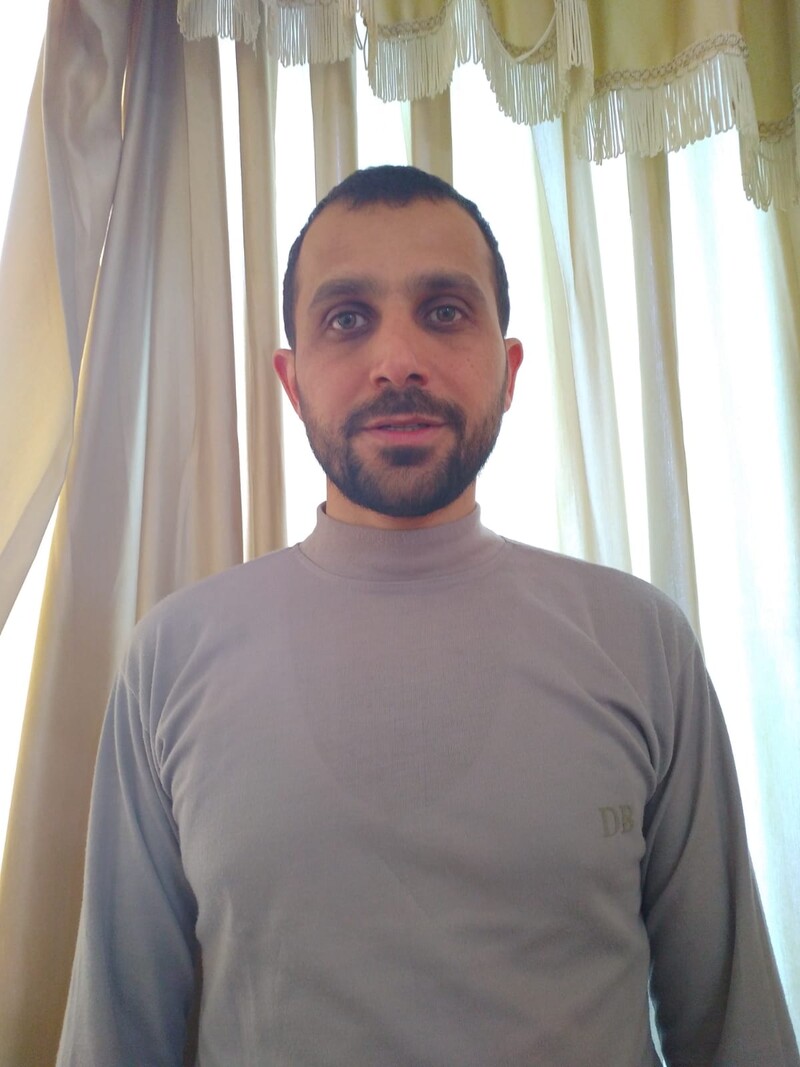The Electronic Intifada 14 April 2020

Sami Hamid Habib in quarantine.
Gaza’s residents used to gather in large numbers to welcome prisoners released by Israel.
Hundreds would converge near Erez, an Israeli military checkpoint. Political messages and national songs would be blasted out from loudspeakers.
Once prisoners had made it through the checkpoint, they would be hoisted onto shoulders. The crowd would be eager to embrace them and celebrate how they had finally gained freedom – or at least the highly limited freedom of being released into a territory under a full blockade.
Soon after, a large convoy of cars – most with Palestinian flags flying from their windows – would drive to the home of the prisoners. A tent would be set up so that the released prisoners could greet wellwishers; it would remain in place for a week, sometimes longer.
COVID-19 has changed everything.
Because of the pandemic, Gaza’s health ministry has placed restrictions on people entering Gaza.
Sami Hamid Habib, 35, was released from Israel’s Nafha prison on 30 March. Israel had jailed him for four years over his involvement with Hamas.
As soon as he arrived in Gaza, his temperature was checked by medical staff. He was then brought to the Blue Beach Resort in Gaza City and placed under quarantine.
The only contact that Habib has been able to have with his sons – Muhammad, 12, and Anas, 10 – during quarantine was by waving at them from the balcony of his hotel room.
“When I saw my kids from the balcony, I felt a sense of sorrow,” Habib said by phone. “I had been away from them for years so I wanted to hug and kiss them. It was very hard for me not to do that but I followed the instructions from the health ministry so that I could keep them safe.”
Habib, who grew up in al-Shujaiyeh, a neighborhood of Gaza City, said that Israel did not take adequate precautions to prevent the spread of the virus among prisoners.
“All the authorities did was give each prisoner a pair of gloves and one mask per week,” he said. “That wasn’t enough to protect us.”
He added that the prison authorities had refused to ensure that prisoners were kept at a distance from each other. The authorities had also refused to adopt less invasive procedures for counting and inspecting prisoners.
Furthermore, Israel would not arrange for the delivery of extra medicine to prisoners via the Palestinian Authority.
Another recently released prisoner, Rateb Fawzi Abu Aqel, returned to Gaza a few days before Habib. Abu Aqel, too, was placed in quarantine.
“These measures must be respected,” he has said. “I spent 12 years in Israeli prisons for the sake of my people. So I am willing to spend 15 days in quarantine for their sake.”
“Deliberate disregard”
The risk of prisoners’ contracting COVID-19 is acute. And at least one Palestinian – Nour al-Deen Sarsour from Betuinia, a village in the occupied West Bank – has tested positive for the virus after recently being released from detention.
As he was held in close proximity to other detainees, it is thought probable that he was infected while in jail.
Palestinian human rights organizations have complained that Israel has not adequately improved medical care and hygiene for prisoners despite the pandemic. By refusing to do so, Israel is not respecting guidance from the World Health Organization on preventing the spread of the coronavirus in prisons.
Approximately 5,000 Palestinians are now being held in Israel’s jails. Of them, around 700 are ill or injured, with 200 having chronic diseases, according to Addameer, a group supporting Palestinian prisoners.
Qadura Fares, head of the Palestinian Prisoners Club, has argued that detainees who are unwell should be immediately freed. He has also protested at how Israel has used the pandemic as a pretext to behaving in an increasingly repressive way toward prisoners by, among other things, curbing access to lawyers and contact with family members.
“In recent days, we have issued dozens of warnings about what is going on inside Israel’s prisons,” he has said.
Qadoura accused Israel of deliberately disregarding the rights of prisoners, adding, “instead of taking the necessary measures to prevent the spread of infection, the Israeli Prison Service has imposed additional punitive measures.”
Abdallah Aljamal is a journalist based in Gaza.


